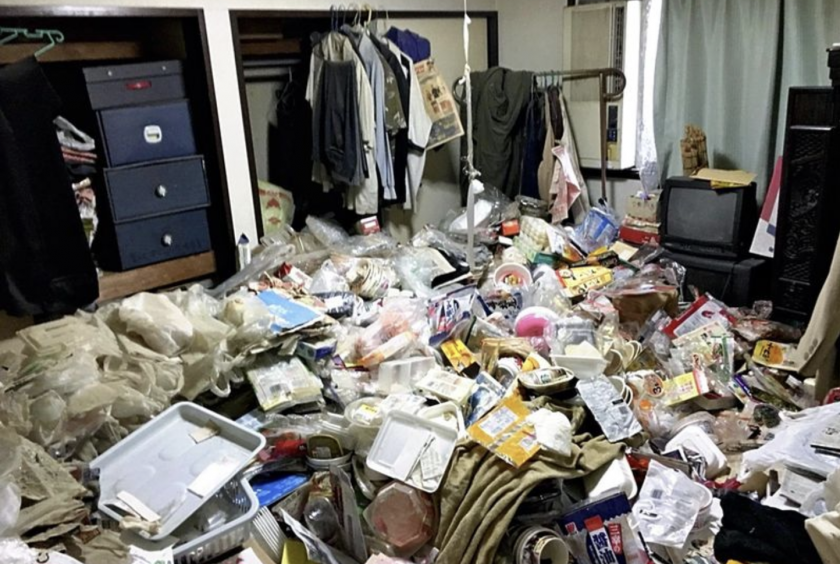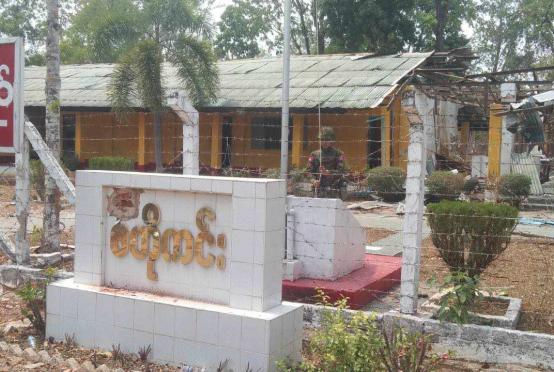
Tokyo (The Japan News) - With the springtime moving season in full gear, trash removal businesses are receiving a flood of orders from people looking to clean up their gomi yashiki — a popular, tongue-in-cheek phrase meaning “trash estates” that describes homes where the trash has piled up to the point that the smell bothers neighbors.
Nowadays, people of working age who fail to clean their living spaces for one reason or another are reported to make up half of all gomi yashiki cases.
Some of these hoarders simply refuse to clear out their rubbish, and effective measures for convincing them to tidy up are nowhere in sight.
3 years’ worth of trash
“I wanted to take the trash out, but I couldn’t resist sleeping in, and it just steadily piled up,” said a man in his 30s who works at a pachinko parlor in Kanagawa Prefecture, as a look of defeat crept across his face.
A giant mound of trash soaring to a height of 1½ meters completely engulfed his one-room, about-10-square-meter apartment unit.
The pile included bread that had expired five years ago, plates encrusted with gobs of food and stained brown, old magazines and forgotten leather shoes. Inside the kitchen sink was a 30-centimeter mountain of egg shells and discarded chicken bones.
The man began accumulating the trash immediately after moving into the apartment five years ago. He did not even clear the pile when he moved to a different apartment two years ago for his job.
Feeling he had no other option, he instead simply left the trash without canceling his rental agreement, and now pays a total of ¥90,000 per month for both his new and old apartments.
With the renewal of his rental agreement approaching, the man finally hired a trash removal company this spring to clear out the mess. The work will set him back about ¥250,000.
“I thought it might be causing problems for my neighbors … I want to use this chance to clean up my current room, too,” he said quietly.
250 reservations a month
According to Crime Scene Special Clean Center, a general incorporated association in Hokkaido that receives cleaning orders mainly for gomi yashiki and delegates them to about 300 cleaning businesses nationwide, the number of such orders has increased eightfold in the last five years, from 131 in 2014 to 1,057 last year. The association is especially busy from March to April, when it receives about 250 orders in a one-month period — double that of a regular month.
Customers during this period sometimes request that their apartments be cleaned in as little as one week because movers are set to arrive.
In recent years, a conspicuous trend has been the large number of working-age people who pile up trash in their living areas — as opposed to elderly people who lack the strength to clean.
According to Mago No Te, a Tokyo cleaning company that conducts about 800 trash removals per year, many customers are in their 30s and 40s and include doctors, nurses and trading company employees.
“Maybe because they work so hard at their jobs they put off cleaning up their houses,” said Mago No Te President Hisashi Sasaki.
Psychological dependence
A survey by the Adachi Ward Office in Tokyo found that out of 104 residents confirmed to be living in gomi yashiki in fiscal 2016, more than half of them, or 54, were younger than 60 years old. In Yokohama, meanwhile, 52 out of 117 residents confirmed to be living in such houses in fiscal 2017 were under 60.
Among the residents in the surveys were those who claimed that they were unable to keep calm without the trash.
http://the-japan-news.com/news/article/0005680847















